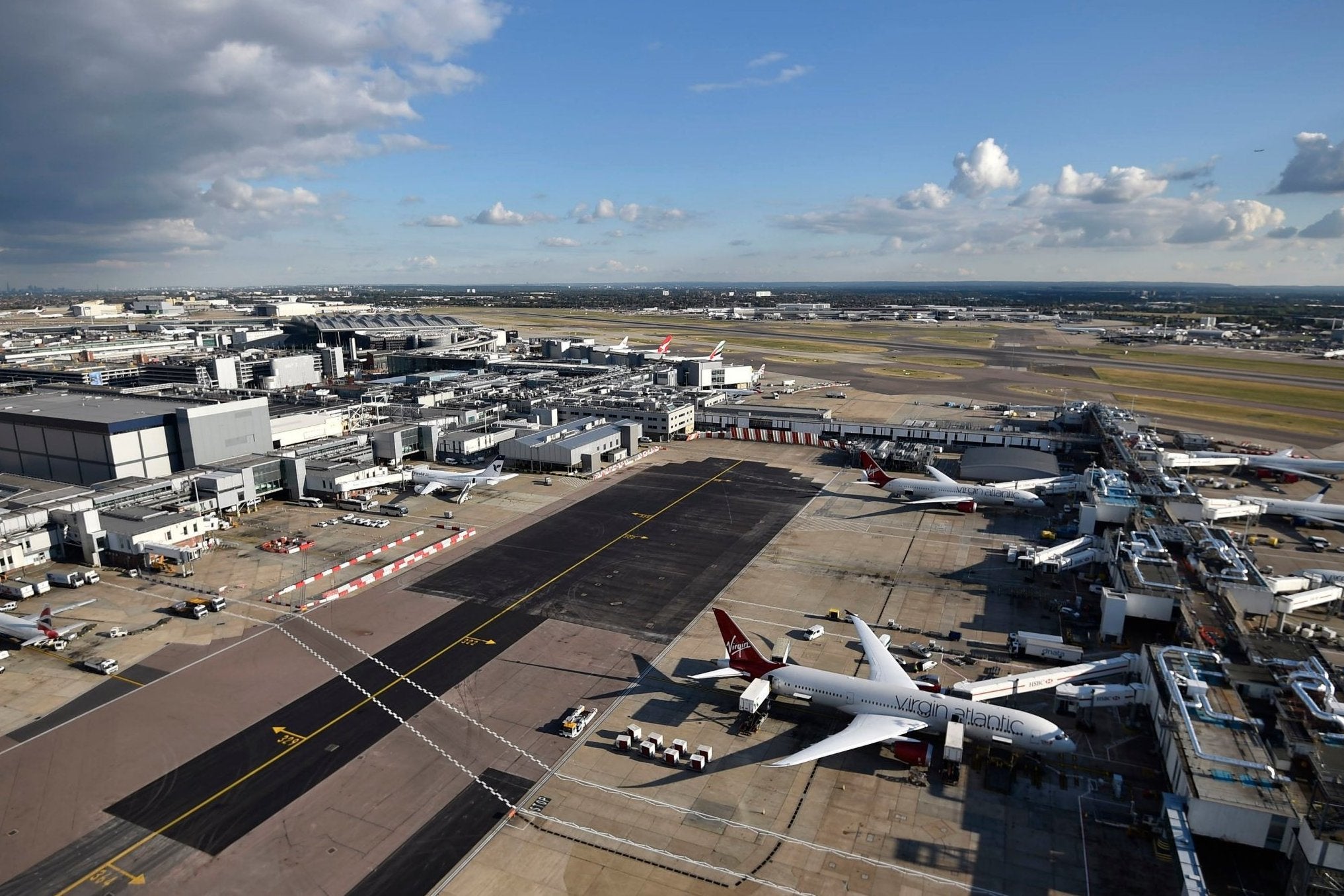Heathrow drone chaos reveals Britain's stretched and fragile airport infrastructure
London is the world’s capital of aviation by a country mile – but the title is ours to lose


Your support helps us to tell the story
From reproductive rights to climate change to Big Tech, The Independent is on the ground when the story is developing. Whether it's investigating the financials of Elon Musk's pro-Trump PAC or producing our latest documentary, 'The A Word', which shines a light on the American women fighting for reproductive rights, we know how important it is to parse out the facts from the messaging.
At such a critical moment in US history, we need reporters on the ground. Your donation allows us to keep sending journalists to speak to both sides of the story.
The Independent is trusted by Americans across the entire political spectrum. And unlike many other quality news outlets, we choose not to lock Americans out of our reporting and analysis with paywalls. We believe quality journalism should be available to everyone, paid for by those who can afford it.
Your support makes all the difference.“We have resumed departures out of Heathrow following a short suspension,” a spokesperson for Europe’s busiest airport said at 6.34pm on Tuesday.
Take-offs from the northern runway at Heathrow were suspended for barely an hour, compared with the 33-hour closure of Gatwick airport immediately before Christmas.
Short by comparison – but still enough to cause severe disruption. Travellers to Montreal, Johannesburg and Washington DC will arrive at least 90 minutes behind schedule, with attendant missed appointments and connections; and residents around Heathrow will be kept awake by arrivals which extend way beyond midnight.
Whether or not the suspected drone incidents at Gatwick and Heathrow turn out to be part of a coordinated campaign, they have revealed how key elements of the UK’s national infrastructure are stretched and fragile – making them especially susceptible to the natural elements and a host of man-made problems.
Ironically, the partial shutdown happened on the day the airport announced plans for increasing the number of flights by a further 68 per day. Heathrow also said the benefits of “independent parallel approaches” would include greater resilience to speed recovery from disruption.
When Heathrow and Gatwick are working at full tilt – which is almost all the time – they can claim to be the most efficient airports in the world. Between them they have half as many runways at Amsterdam Airport, yet this year they will handle around 125 million passengers, nearly twice as many as the Dutch airport.
London is the world’s capital of aviation by a country mile, which is hugely to the benefit of the UK economy. It also provides more travel opportunities at better fares than any other city on the planet: a benefit to passengers, if not residents around the airports.
The capital has certainly not achieved this status through shrewd planning; instead, it shows how amazingly far it is possible to exceed the design limits of airports established a lifetime ago.
But the title is London’s, and Britain’s, to lose. The disruption at Gatwick before Christmas cost airlines tens of millions of pounds, and wrecked the travel plans of 150,000 people.
If drones – whether piloted by a reckless idiot or a genius intent on causing maximum harm – can wreak havoc repeatedly, passenger and business confidence will quickly erode.
Every other airport in the UK, and the wider world, will have been watching events at Heathrow and Gatwick with growing concern. So too will the British travel industry, both inbound and outbound, which depends on reliable connections.
Business travellers who had to wait on board aircraft on the ground for well over an hour before they could join an overextended queue for the northern runway may quietly curse the drone ranger over their gin-and-tonic. But they may also, perhaps unfairly, blame a government that is desperate to demonstrate that Britain is “open for business” as the nation stumbles towards Brexit.
It is not just our peculiar politics, but our ability to cope with aerial adversity that is under scrutiny.
Join our commenting forum
Join thought-provoking conversations, follow other Independent readers and see their replies
Comments